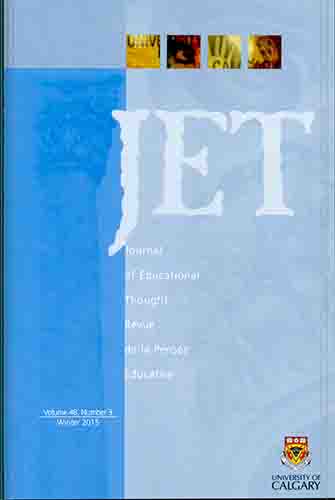The People's Free University: Alternative to the Corporate Campus and Model for Emancipatory Learning
DOI:
https://doi.org/10.55016/ojs/jet.v48i3.44233Abstract
Our article describes how the People's Free University (PFU) emerged directly from a series of seminars at the University of Saskatchewan in the Fall of 2001 that addressed critical concerns about a discernible tendency on campus towards the adoption of a business corporate style of governance steered increasingly by marketplace priorities. The seminars, open to the public as well as students, staff and faculty, turned to a discussion on the significance of a "people's university" envisioned for the University of Saskatchewan by its first President, Walter Murray. Invoking Murray's vision opened the way to the remarkable beginning and subsequent creative program development of a free university. Examples of community-based adult education initiatives from which PFU drew are identified, situating it historically within an on-going critical legacy that has become even more relevant in the face of neo-liberal imperatives. The emancipatory pedagogy entailed is informed substantially through the theory and practice of Paulo Freire, Thomas Hodgskin and Alfred North Whitehead. Essential learning processes and guiding principles which characterize PFU pedagogy are illuminated under the rubric of "everyone can teach, everyone can learn." In drawing a connection between the PFU experience and resistance to attacks on academic freedom at the University of Saskatchewan, we align the enlightened aims of community-based popular education embodied in PFU against profit driven encroachments of corporate business interests.
Downloads
Published
Issue
Section
License
The Journal of Educational Thought retains first publication rights for all articles. The Journal grants reproduction rights for noncommercial educational purposes with the provision that full acknowledgement of the work’s source be noted on each copy. The Journal will redirect to the appropriate authors any inquiries for further commercial publication of individual articles. All authors wishing to publish in JET will be asked to fill in and sign a Consent to Publish and Transfer of Copyright agreement.
Authors must affirm that any submission to JET has not been and will not be published or submitted elsewhere while under considration by JET.

